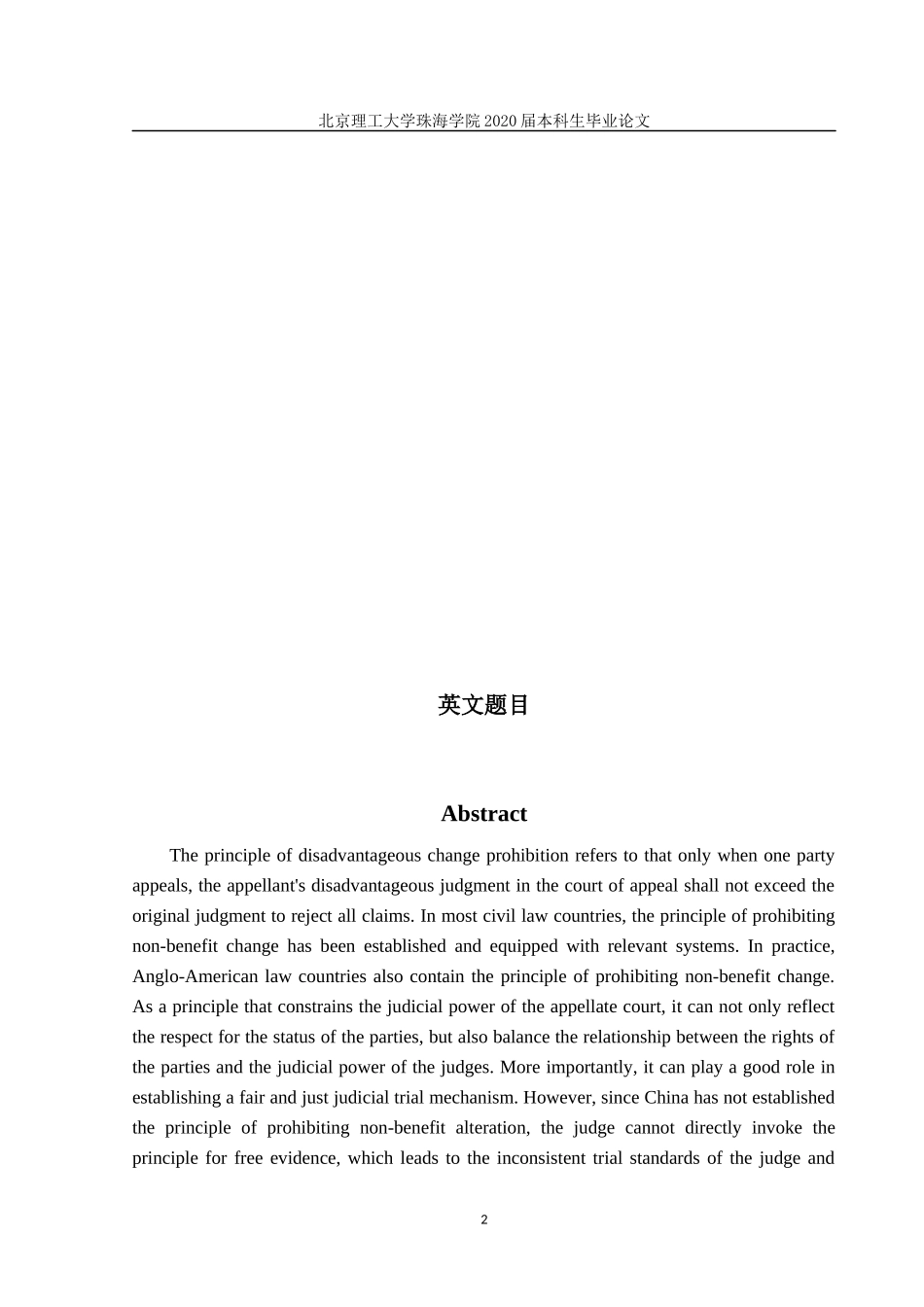北京理工大学珠海学院 2020 届本科生毕业论文民事上诉审中禁止不利益变更原则的研究民事上诉审中禁止不利益变更原则的研究摘 要禁止不利益变更原则是指只有在一方当事人上诉的情况下,上诉人在上诉法院所遭受的不利判决,不得超过原审判决即驳回全部诉讼请求。作为一个约束上诉法院法官审判权的原则,不仅能体现对当事人地位的尊重,还能平衡当事人的权利与法官的裁判权之间的关系,更重要的是可以对建立公平正义的司法审判机制起着良好的作用。但由于我国并没有确立禁止不利益变更原则,法官无法直接援引该原则进行自由心证,导致法官的审判标准不一致,长期以来损害了司法公信力。因此本文以此出发,分成四个方面来阐述自己的观点:先对禁止不利益变更原则进行解释和说明,并且分析该原则在刑事诉讼法和行政诉讼法之间的体现,之后把上诉共通原则和附带上诉制度进行总结归纳。通过研究考察大陆法系国家和英美法系国家的立法制度中禁止不利益变更原则的建设,总结两大法系的立法思路和可取之处。从而对是否构建我国禁止不利益变更原则的学术观点进行展开说明,综合实务上出现的问题,对建立禁止不利益变更原则提出自己的意见。关键词:禁止不利益变更、上诉、附带上诉、审判权、处分权1北京理工大学珠海学院 2020 届本科生毕业论文英文题目AbstractThe principle of disadvantageous change prohibition refers to that only when one party appeals, the appellant's disadvantageous judgment in the court of appeal shall not exceed the original judgment to reject all claims. In most civil law countries, the principle of prohibiting non-benefit change has been established and equipped with relevant systems. In practice, Anglo-American law countries also contain the principle of prohibiting non-benefit change. As a principle that constrains the judicial power of the appellate court, it can not only reflect the respect for the status of the parties, but also balance the relationship between the rights of the parties and the judicial power of the judges. More importantly, it can play a good role in establishing a fair and just judicial trial mecha...


